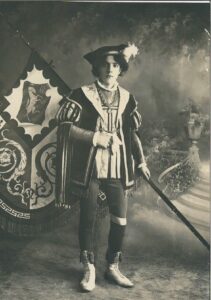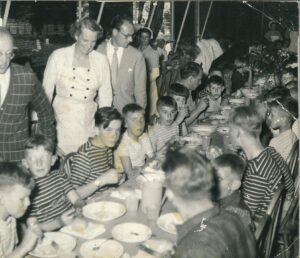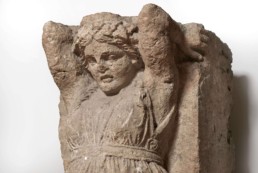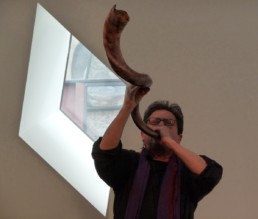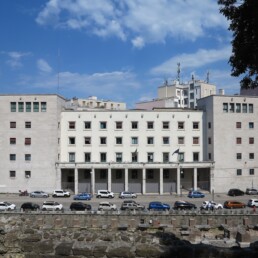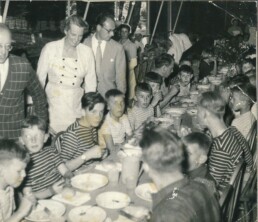Lecture on leather tanning in Greek antiquity
Wednesday 15 February 2023 at 6 pm
Villa Lante al Gianicolo
FROM SKINS TO LEATHER: TANNING IN ANCIENT GREECE
Dr. Petra Pakkanen
Finnish Institute of Athens
The lecture is organized in collaboration with Amici di Villa Lante al Gianicolo
Tanning and leather production in Roman antiquity has recently attracted increasingly scholarly attention. However, our knowledge on equivalent practices in Greek antiquity is far patchier and often ignored. This lecture provides an overview with insights to detail to tanning in Greek antiquity. It will cover terminological issues relating to skins, leathers and their processing, provides an overview of tanning procedures on the basis of ancient Greek textual, epigraphic, iconographic and material evidence, and discusses the connection between tanning and sanctuaries. In the end the questions concerning tannery archaeology in Greece will be addressed.
Petra Pakkanen is the Director of the Finnish Institute at Athens. In her research she has specialist particularly in ancient Greek religion, its theoretical and practical aspects and has worked with the so-called ‘archaeology of cult’ also with reference to excavation projects in Greece. She has written extensively also on the theme of 19th-century philhellenism and its use in national discourses particularly in Northern Europe. Her current research interest concern leather production and the use of leather goods in ancient Greece, including the social and cultural aspects of tanneries and tanners.
To attend the event please register by filling out the registration form.
ArCHeoM 2023 Archeologia svizzera nel Mediterraneo occidentale
16 febbraio 2023 h09:30/20:30 entrata da Via Liguria, 20
Durante il convegno di quest’anno, le post-dottorande e i post-dottorandi svizzere/i hanno l’occasione di presentare i loro progetti di ricerca nella regione del Mediterraneo. Le/i partecipanti includono professoresse/professori, e ricercatrici/ricercatori di archeologia classica delle università di Basilea, Berna, Friburgo, Ginevra, Losanna, Neuchâtel e Zurigo.
L’Istituto Svizzero ospita ogni anno i dipartimenti di archeologia delle Università svizzere, offrendo una piattaforma di lavoro e discussione per dare maggiore visibilità alla ricerca archeologica elvetica nella regione mediterranea.
Le conferenze si terranno in tedesco, francese, inglese e italiano all’Istituto Svizzero, via Liguria 20, Roma. Vedi sul sito la registrazione e il programma della giornata https://www.istitutosvizzero.it/it/conferenza/archeom-2023/
A letter to Giacinto Celsi
24 febbraio 2023, ingresso via Liguria 20
Il compositore e musicista Alvin Curran e le/gli studentesse/studenti di Sound Arts dell’Accademia delle Arti di Berna (HKB) terranno un concerto all’Istituto Svizzero.
Alvin Curran (1938) è un compositore, sound artist, scrittore ed educatore americano che vive a Roma da molti anni. Nel corso della sua vasta carriera, ha creato installazioni sonore, performance solistiche, opere radiofoniche, lavori coreografici, concerti ambientali e musica per quartetti d’archi, ensemble da camera e quartetti di sassofoni. Molte delle sue opere combinano la strumentazione acustica con l’elettronica e i suoni registrati/campionati, tra cui voci, corni da nebbia e suoni della natura come il vento, l’acqua e i rumori degli animali. È cofondatore, con Frederic Rzewski, Allan Bryant e Richard Teitelbaum, del gruppo romano di improvvisazione libera Musica Elettronica Viva.
Per partecipare registrarsi sul sito https://www.istitutosvizzero.it/it/concerto/a-letter-to-giacinto-scelsi/
Public Lecture: The Afterlives of Italy’s Fascist Party Headquarters from 1945 to Today
Since the end of the Second World War, Italians have faced the question of what to do with the physical traces of the Fascist regime, and whether to preserve, demolish, alter, or renovate buildings and monuments of that era. Fascist sites represent a difficult heritage that it is too important to be ignored, but which also elicits divisive and painful memories. The roughly 5000 headquarters of the Fascist Party, or case del fascio, which were built across Italy between 1922 and 1943, are a perfect example of that difficult heritage. Having been created to represent Fascist party, they became redundant after its dissolution. While they lost their original purpose, they were recycled to serve new uses. In taking on new meanings in the light of an evolving culture and politics, they became comfortably integrated into Italian towns and cities. The treatment of the case del fascio is emblematic of how Italy has dealt with its Fascist past across the postwar period. Today, as the rule of a far-Right government fuels anxieties around the lasting legacies of Fascism, the case del fascio illustrate the creative and complex ways in which those legacies have been handled.
About the speaker
Hannah Malone is Assistant Professor in Contemporary History at the University of Groningen. After completing a PhD at the University of Cambridge, Hannah worked as a research fellow and lecturer at the British School at Rome, Magdalene College Cambridge, the Freie Universität, and the Max Planck Institute for the History of Emotions in Berlin.
Her research uses architecture as a window onto the nature of memory and politics. She is author of a book entitled Architecture, Death and Nationhood: Monumental Cemeteries of Nineteenth-Century Italy (Routledge, 2017) and has recently completed the manuscript of a book on Fascist Italy’s military ossuaries (sacrari) of the First World War.
As NWIB Visiting Professor at the KNIR in 2023, Hannah will investigate what happened to Italy’s Fascist Party Headquarters (case del fascio) after the fall of Mussolini’s dictatorship in 1945.
Dr. Jan Bernard Gijsman has joined the team of the KNIR Bibliotheek
We are excited to announce that Dr. Jan Bernard Gijsman has joined the team of the KNIR Bibliotheek as a volunteer. He is working with Adrian Luijdjens' extensive photo collection.
On our website you can read more about Jan Bernard's first findings: https://www.knir.it/.../fotoarchief-adriaan-luijdjens/
